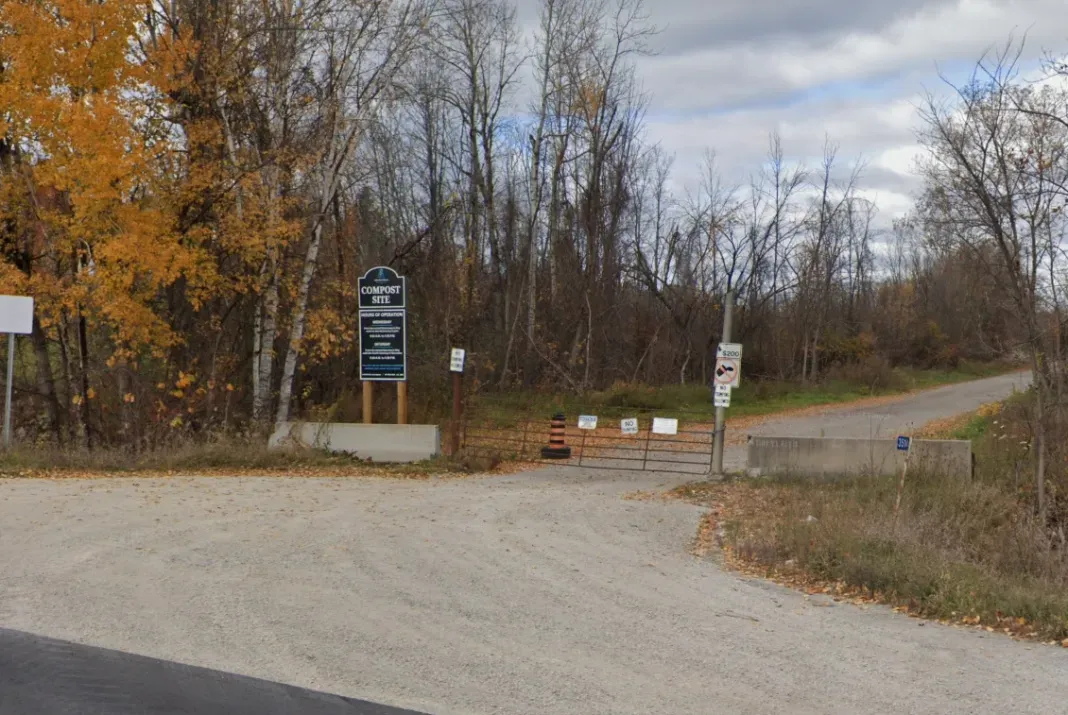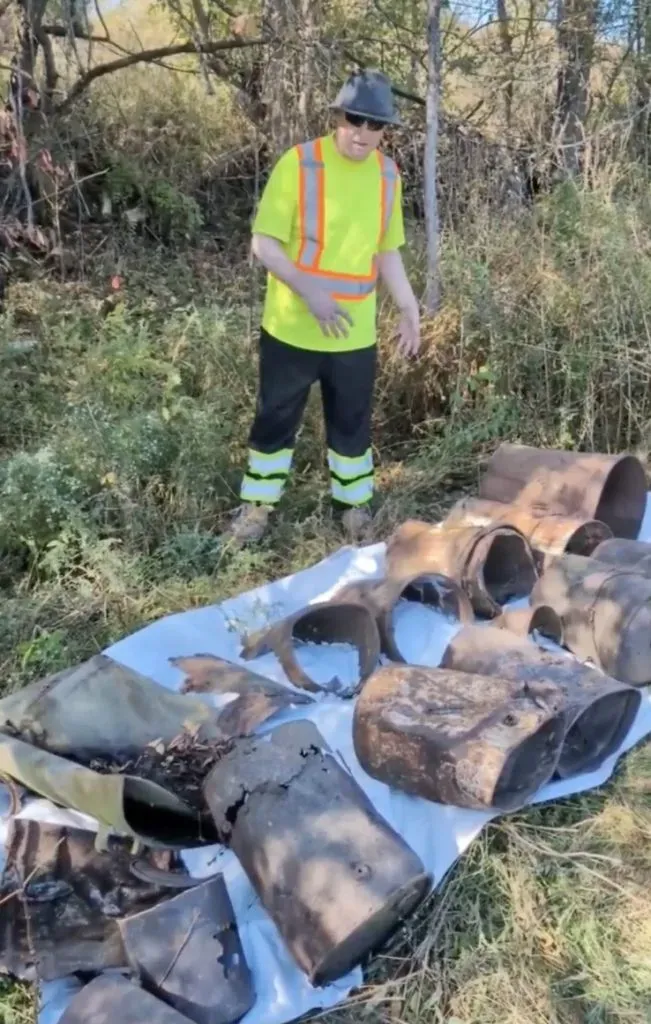SMITHS FALLS — Nate Morris took matters into his own hands Monday, Sept. 29, when he dug up deteriorated metal vessels in wetlands beside the Smiths Falls compost site.
Morris confirmed in an email to Hometown News that the location where the retrieval took place lies within public wetlands near the Smiths Falls compost site rather than on town property.
The items appear corroded, with jagged edges and collapsed sections. Morris said they were drums that had spent decades partially buried in mud, leaving only the top portions intact.
He said the discovery underscores his concerns about environmental testing around the Smiths Falls compost site. The Ministry of the Environment, Conservation and Parks (MECP) ordered a delineation study in November 2024 to assess whether contaminants are migrating into wetlands near the town’s drinking water intake.
“The town appears unconcerned by the fact that they have not even tried to locate the source of the contamination, nor have they tested the area shown in the video, precisely where a delineation study should have been conducted,” Morris said.
Remediation proposal
Morris, a member of the Rideau Round Table, said he would like to see debris removed and a long-term system put in place to neutralize toxins. His proposal includes an erosion-control barrier filled with biochar, fungi and a row of hybrid poplars.
“For that work, I would definitely need permission,” he said.
Public Works Director Paul McMunn said the town has disclosed test results and completed the studies required by MECP. He confirmed that soil tests from March and December 2024 showed exceedances for cadmium, lead, zinc, petroleum hydrocarbons (PHCs) and polycyclic aromatic hydrocarbons (PAHs). He said those results were reported to council and summarized in a Sept. 17 staff report.
McMunn said delineation work was carried out by St. Lawrence Testing as part of a work plan submitted to MECP in June. Groundwater monitoring wells were installed and results were provided to the ministry on Sept. 8. “The town’s website has been updated with the delineation assessments and they are publicly available,” he said in an email to Hometown News on Sept. 29.
He said contamination exceedances were isolated to soil on the Smiths Falls compost site. “Environmental testing to date, inclusive of soil, surface water and groundwater testing, validates that exceedances in soil samples are isolated to the compost site and do not pose a health risk to the town’s drinking water,” McMunn said.
McMunn said the source of the exceedances is unknown. He said protocols now include annual groundwater monitoring, with reports submitted each May, and that all results will be posted online.
Follow-up comments, Sept. 30
On Sept. 30, after reviewing newly posted town documents, Morris said they do not answer two questions: the source of the contamination and whether it is migrating into wetlands. “If the town is in possession of any documents that address these two key questions, they have not disclosed them,” he said.
Morris cited soil test results from spring 2025 that showed exceedances for petroleum hydrocarbons, several PAHs and lead. He said the results were not provided to MECP for 165 days and were not disclosed to the Health Unit.
He also questioned a surface water test of a creek, noting it was not ordered by MECP and was collected by town staff. He said the results were presented alongside other consultant-collected tests and may have been used by officials when assessing risk.
“Until the missing delineation study is located, it is simply disingenuous to suggest that anyone knows how much danger the contamination poses to the people of Smiths Falls,” Morris said.
New approval conditions
The new Environmental Compliance Approval (ECA), issued Sept. 11, revoked the Smiths Falls compost site’s original 1992 approval and restricts operations to composting of yard waste, wood chips, grass clippings and other green waste from Smiths Falls and Drummond-North Elmsley. Biochar production is not permitted.
The ECA also sets limits of 30 tonnes of waste accepted per day, with a maximum of 1,450 tonnes stored on site at any time. The site operates Wednesdays from 9 a.m. to 3 p.m. in May and June, and Saturdays from 8 a.m. to 4 p.m. from May through November.
Stay up to date on your community—Read the latest Smiths Falls news.




